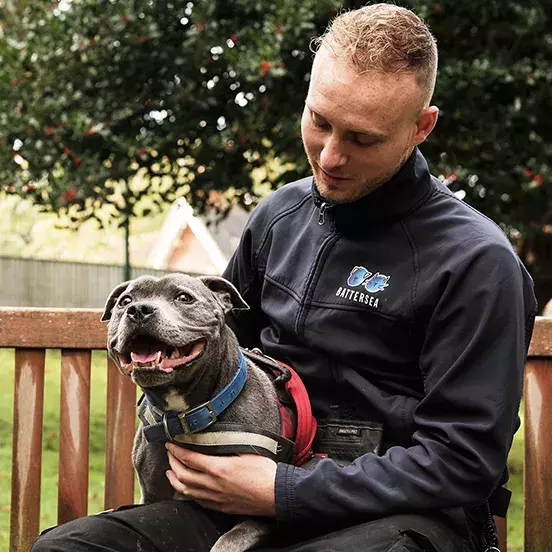In May 2021, the UK Government launched its Action Plan for Animal Welfare, a wide-ranging strategy setting its direction on animal welfare for the rest of this Parliament.
The strategy includes high-profile law changes that will be introduced over the coming years. A new Bill that recognises animals as sentient beings is already making its way through Parliament, a move Battersea has welcomed.
Perhaps the most significant development, however, is the introduction of the Kept Animals Bill, which is due to be debated this autumn.

What is the Kept Animals Bill?
The Kept Animals Bill addresses the movement of animals into the United Kingdom. The surge in demand for pets at the beginning of the COVID-19 pandemic exceeded what UK breeders could supply, which increased prices significantly and created a growing market for pets imported from other countries. As the demand has grown, so has the need for proper legislation and enforcement.
This increased demand has led to potential pet owners turning to a wide range of sources to find their dream dog or cat, with many purchasing from websites that make tracing the origins of the animal either difficult or impossible.
In turn, unscrupulous breeders have been capitalising on the current lax importing requirements and are evading existing restrictions, transporting animals across borders with little thought given to their welfare. The tragic consequences can regularly be seen in high-profile news stories.
Any efforts to better control and monitor the movement of animals into the UK are therefore to be welcomed.
What should the Kept Animals Bill address?
Puppy age and health
The Bill will create a framework that will allow the Government to bring in further restrictions, such as minimum age at which dogs can be imported into the UK, a move Battersea supports.
However, this measure could be strengthened by increasing the wait time between a dog getting its rabies vaccination and when it’s allowed to enter the UK. The vaccination should be given when a puppy is a minimum of 12 weeks old, and the puppy should then have to wait another 12 weeks before it can enter the UK.
This would mean transporting puppies to the UK would be prohibited until they are at least six months old. Not only would this make puppy smuggling less profitable, but enforcement of the legislation would be easier, and it would become less likely that rabies is able to enter the UK. Dogs should also be required to be treated against ticks before entering the UK from certain countries where specific tick-borne diseases are present.
Transportation
The Government also plans to reduce the number of dogs and cats that can be moved under pet travel rules. The draft legislation suggests this should be set at five per non-commercial vehicle. However, DEFRA’s own evidence suggests that most people and members of the general public do not typically own or need to transport this many animals at one time, so Battersea is pushing for the limit to be reduced to three.
Tightening loopholes
The legislation should be tightened so more visual and age verification checks of animals take place at borders. This would provide more opportunities to check the conditions in which animals are being transported. There should also be an increase in the range of checks, including spot-checks during out of office hours.
Cat Welfare
Much of the new legislation focuses on changes to improve the welfare of dogs. It’s important to recognise that the demand for pet cats has also soared since the pandemic. Cats have welfare needs of their own and ought to be protected by this law. For example, cats are territorial animals, and any transportation can cause them additional stresses to those facing dogs, therefore Battersea would advocate, increasing the minimum age of importation to six months, and a ban on moving cats in the last 50% of pregnancy. Battersea would advise cat owners that because of the increased stress cats should not be transported internationally if not required.
Data on Pet Imports
Finally, as the Government has acknowledged, the data on importing pets needs to be more accurate and transparent. Better data would help trace animals and would make it easier to spot new trends in imports.
Next steps
The Government making such a visible commitment to improving animal welfare in this Parliament is a positive step in the right direction.
With a few important adjustments, we believe the pet importation aspects of the Kept Animals Bill can do a great deal to improve the welfare of animals being imported into the country. We’re looking forward to working with colleagues in other animal welfare charities and MPs from all political parties to help improve the legislation.
You can find updates on our work to help amend the Kept Animals Bill and our other campaigning priorities by following our Twitter account, and by signing up for Battersea campaigner updates.
